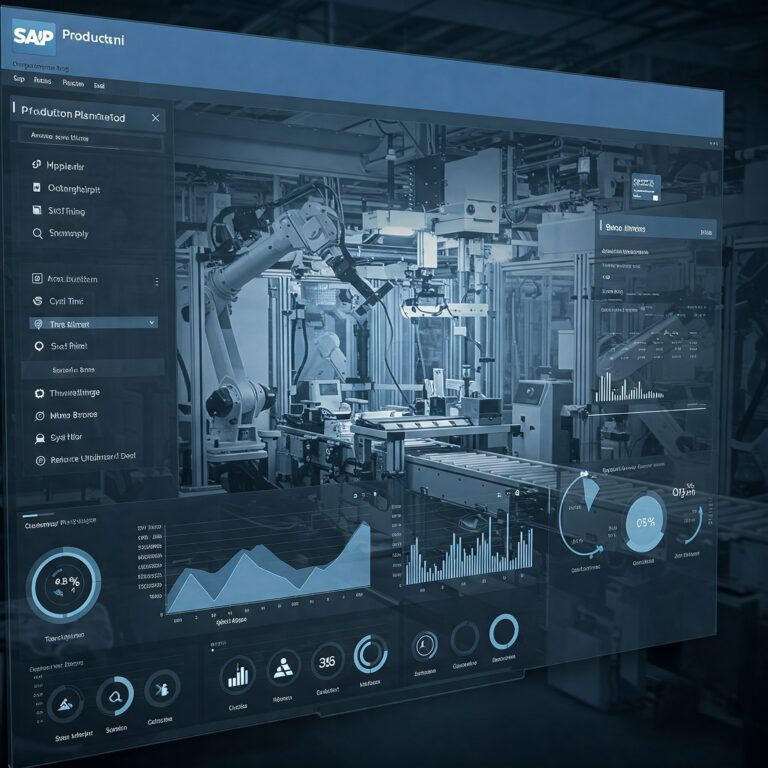What is the Use of SAP MM Course? Your Complete Guide 2025
I still remember sitting in that coffee shop three years ago, scrolling through job listings and feeling utterly lost. My friend leaned over and said, “What is the use of SAP MM course?”
I hadn’t. But that conversation changed everything.
Today, I’m writing this to help anyone who’s standing where I once stood—wondering if learning SAP MM is worth it, what doors it might open, and whether it’s the right career move.
Connect With Us: WhatsApp

Understanding SAP MM: More Than Just Software
SAP MM (Materials Management) isn’t just another tech course you add to your resume. It’s the backbone of how major companies handle their entire supply chain operations. Think about it: every product you’ve ever bought went through procurement, inventory management, and vendor coordination. That’s where SAP MM comes in.
The module handles everything—from purchase requisitions and vendor management to inventory control and invoice verification. It’s like being the conductor of a massive orchestra, ensuring every instrument plays at the right time.
Why Companies Are Desperate for SAP MM Consultants
Most people don’t realize this, but there’s a huge talent shortage in the SAP domain. Large corporations—manufacturing giants, retail chains, pharmaceutical companies—run on SAP. But finding professionals who understand SAP MM deeply? That’s the real challenge.
This is why taking an SAP MM course makes practical sense. You’re not just learning software; you’re becoming fluent in a language global businesses use daily. And companies pay handsomely for that skill.
The Real-World Applications Nobody Talks About
When I started SAP MM training, I expected only theory. I was wrong. Good SAP MM courses focus on real business scenarios. You learn how to handle:
-
Vendor negotiations & master data management
-
Procurement cycles from requisition to delivery
-
Inventory optimization and stock control
-
Integration with FI, PP, SD, and other SAP modules
One instructor even shared a story of preventing a $2 million purchasing error simply by understanding approval workflows. That’s when I realized this wasn’t data entry—it was business protection.
What You’ll Actually Learn in an SAP MM Course
A comprehensive SAP MM syllabus includes:
-
Basics of ERP and why SAP dominates
-
Procurement process: PR, RFQ, PO
-
Inventory management: goods receipt, goods issue, stock transfers
-
Material master data: types, sectors, configurations
-
Hands-on practice in SAP training systems
The hands-on part is the most valuable—you get to explore a demo SAP environment and build confidence before working on a live system.
The Investment: Course Fees and Certification
SAP MM course fees vary widely. You’ll find free tutorials, but structured professional training—especially with certification—usually costs more.
-
Free SAP MM resources are great for basics (YouTube, PDFs, forums).
-
Professional SAP MM courses in India: ₹25,000 to ₹60,000.
-
SAP MM certification adds huge value and increases your credibility.
It’s an investment—but one that pays off quickly.
The Financial Reality: SAP MM Salary Expectations
SAP MM freshers in India typically earn ₹3.5–6 LPA.
With 2–3 years of experience, salaries rise to ₹8–12 LPA.
Senior consultants earn ₹15–25 LPA+, and those with cross-module skills (MM+SD/PP/FI) often earn even more.
In global companies, six-figure USD salaries are common.
Breaking Into the Field: Your Action Plan
Here’s what to do next:
-
Start with free SAP MM PDFs and YouTube videos
-
If it interests you, research institutes offering quality SAP MM training
-
Look for:
-
Hands-on practice
-
S/4HANA content
-
Case studies
-
Interview preparation
-
Certification support
-
-
Join SAP community forums to start networking
Preparing for SAP MM Interview Questions
Companies don’t want someone who memorizes T-codes. They want smart problem-solvers.
Common SAP MM interview questions include:
-
How do you handle goods received without invoice?
-
Explain the procure-to-pay cycle.
-
Differences between consignment & standard procurement.
Focus on understanding business processes deeply.
Top 10 FAQ About SAP MM Course
1. What exactly is SAP MM, and why is it important?
SAP MM is a module within SAP ERP that manages procurement and inventory functions. Every product-based company uses it.
2. How long does it take to complete an SAP MM course?
2–3 months part-time or 4–6 weeks full-time.
3. Can I learn SAP MM without a technical background?
Yes! Many MM consultants come from commerce, BBA, MBA, and supply chain backgrounds.
4. What’s the difference between SAP MM certification and taking a course?
Courses give knowledge; certification gives official SAP validation.
5. Are there free resources to learn SAP MM?
Yes—YouTube, PDFs, forums, SAP Learning Hub basics, etc.
6. What career opportunities exist after SAP MM training?
SAP MM Consultant, Procurement Analyst, Supply Chain Specialist, ERP Consultant, etc.
7. Do I need to know other SAP modules?
Not initially, but FI, SD, PP knowledge helps later.
8. How do I prepare for SAP MM interviews?
Understand business scenarios, procure-to-pay cycle, and real-time cases.
9. Is SAP MM syllabus same everywhere?
Core topics stay the same; depth varies by institute.
10. Can I work remotely as an SAP MM consultant?
Yes! Many SAP roles are remote or hybrid.
Connect With Us: WhatsApp
Conclusion
After three years in this field, my answer is yes—SAP MM is worth it.
But only if you’re genuinely interested in business processes, problem-solving, and continuous learning.
SAP S/4HANA is transforming the SAP MM landscape, but the core business concepts remain timeless. Learn them well, stay updated, and you’ll build a career that is both rewarding and future-proof.
That coffee shop conversation changed everything for me. Maybe this guide will do the same for you.








